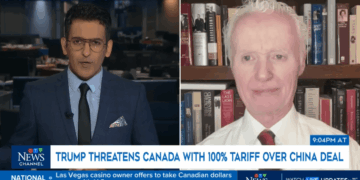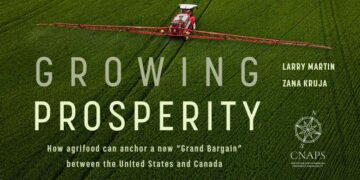This article originally appeared in the Financial Post. Below is an excerpt from the article.
By Jack Mintz, November 12, 2024
Soon after it became clear that Donald Trump was going to win the U.S. presidential election and the Republicans would control the Senate and possibly the House of Representatives, the Dow Jones index surged 1,300 points. In a way, the stock market’s vote of confidence was surprising: Trump’s economic platform is a mix bag. Tax relief and deregulation are popular with investors, but trade-disrupting tariffs and budget-busting deficits could push up interest rates down the road.
For Canadians, however, the Trump bag is not so mixed: new economic threats from Trump’s America are clearly on their way.
Although budget matters typically need the co-operation of Congress, tariff policy is an important exception. The U.S. constitution requires Congress to approve any “Taxes, Duties, Imposts and Excises.” In 1934, however, Congress delegated international economic policy to the president. This was in done in the belief he or she would be less influenced by lobbyists pushing for industry protection, as had been the case with 1930’s Smoot-Hawley Act, which had sparked tariff wars and a sharp decline in trade that worsened the Great Depression. With the current vogue for industrial policy, both the Trump I.0 and Biden administrations had no qualms raising tariffs, especially on China.
***TO READ THE FULL ARTICLE, VISIT THE FINANCIAL POST HERE***








